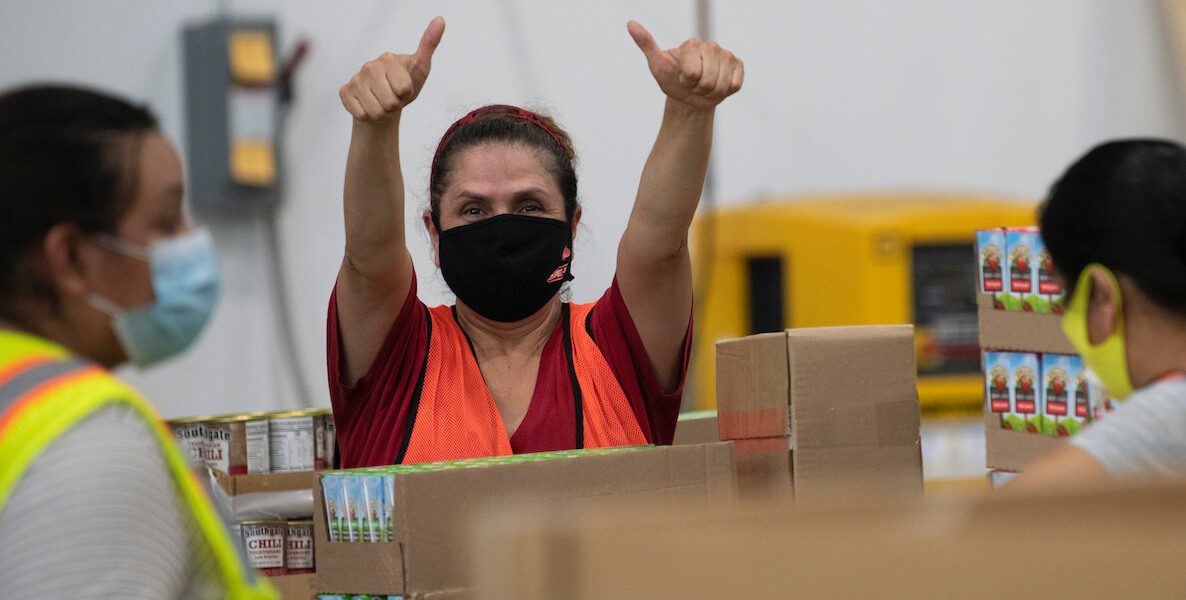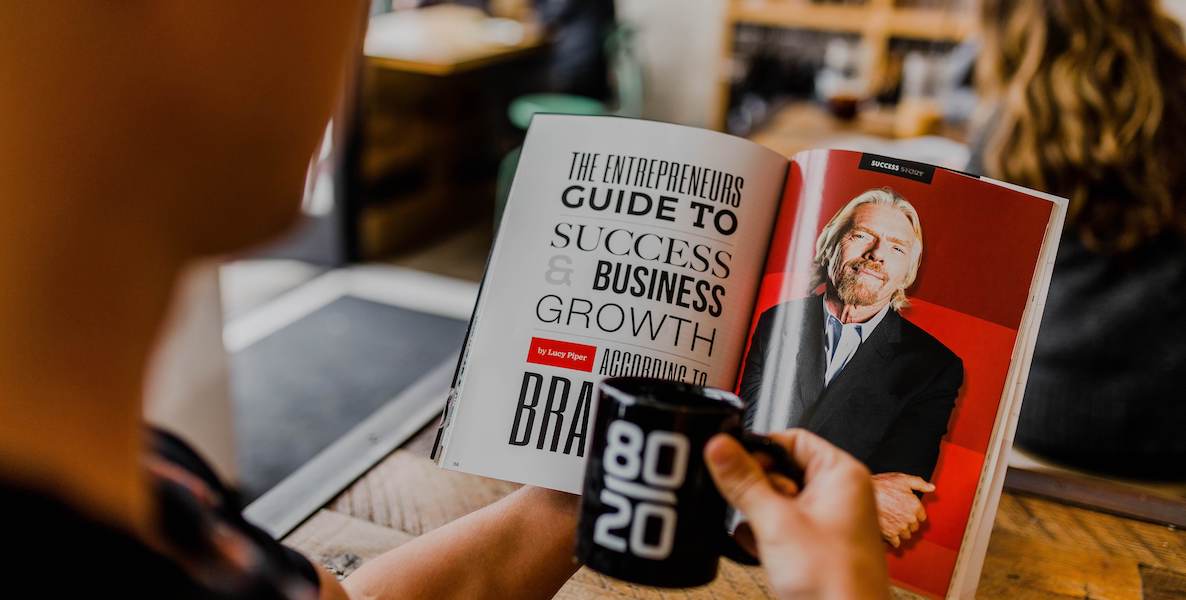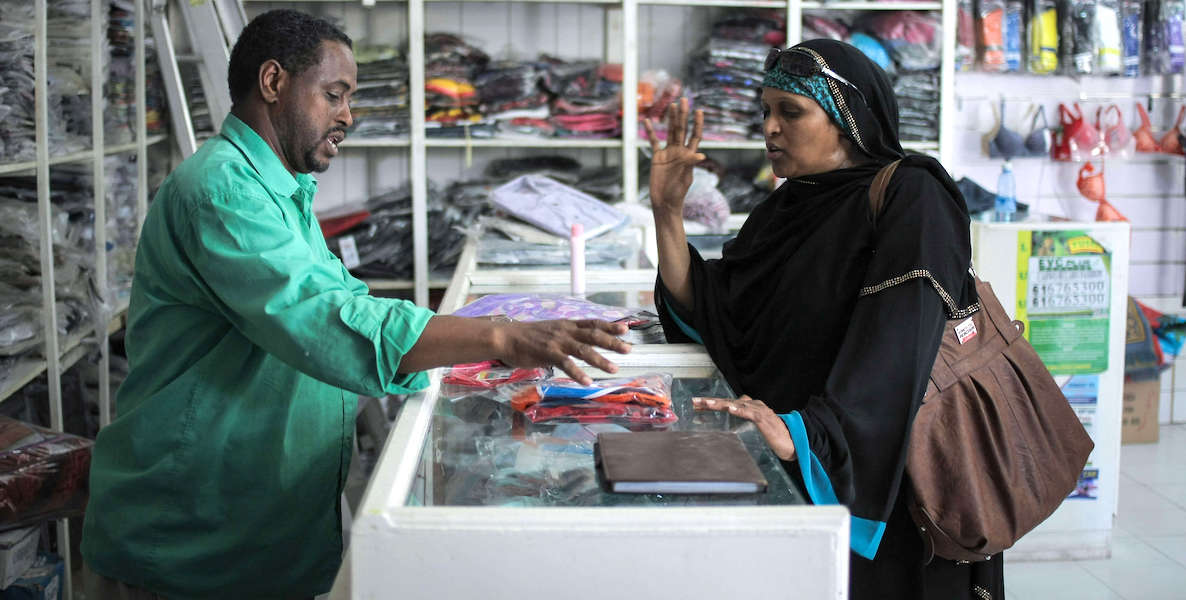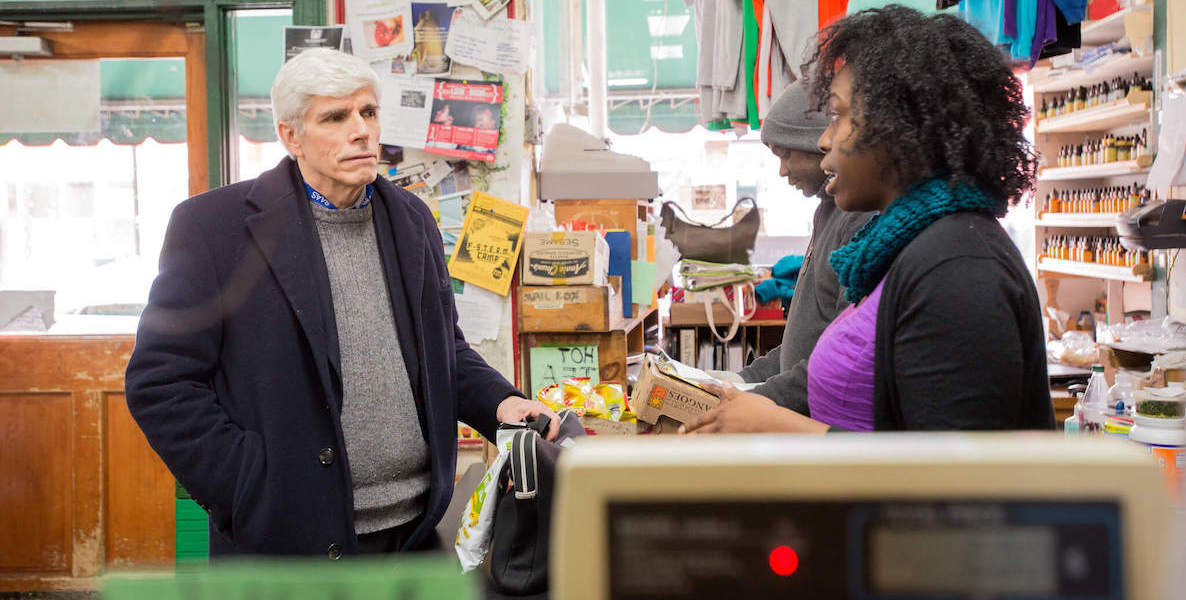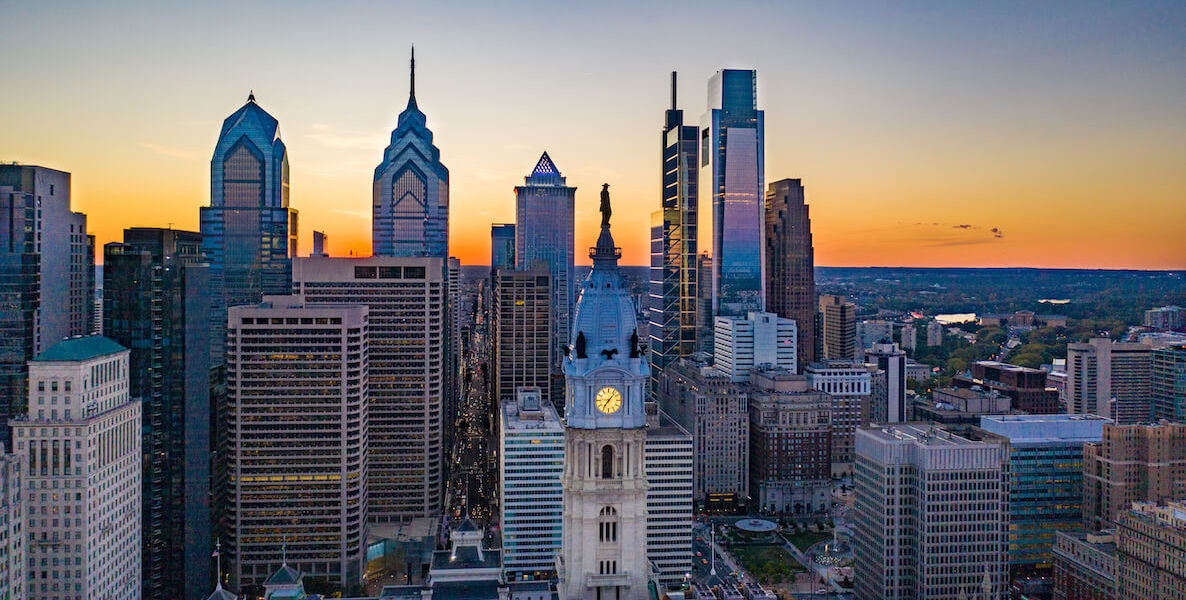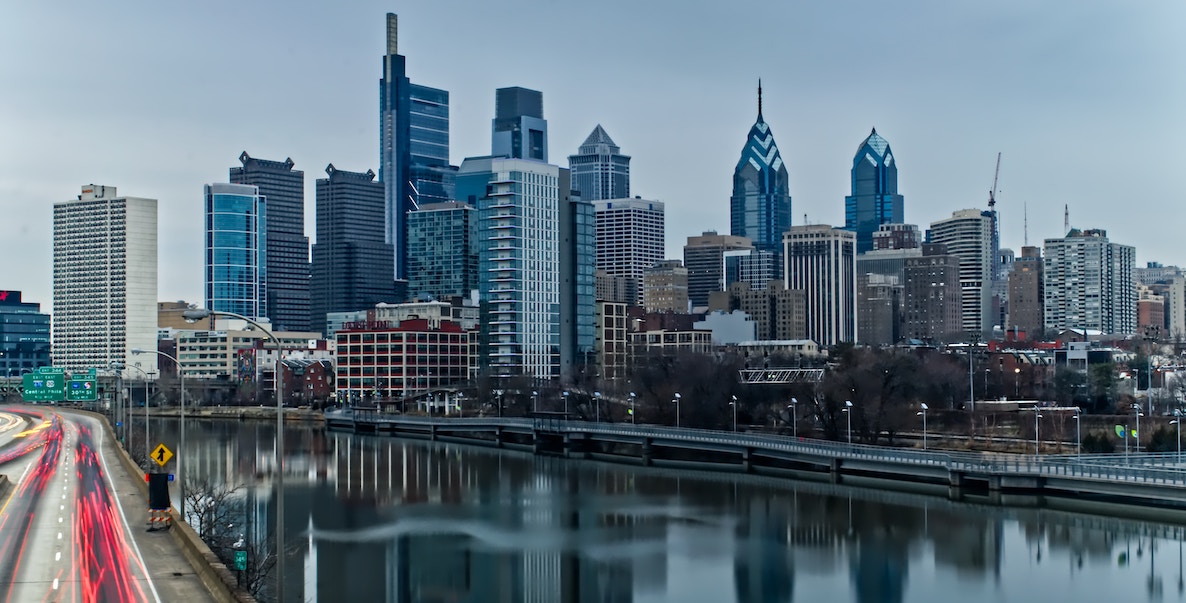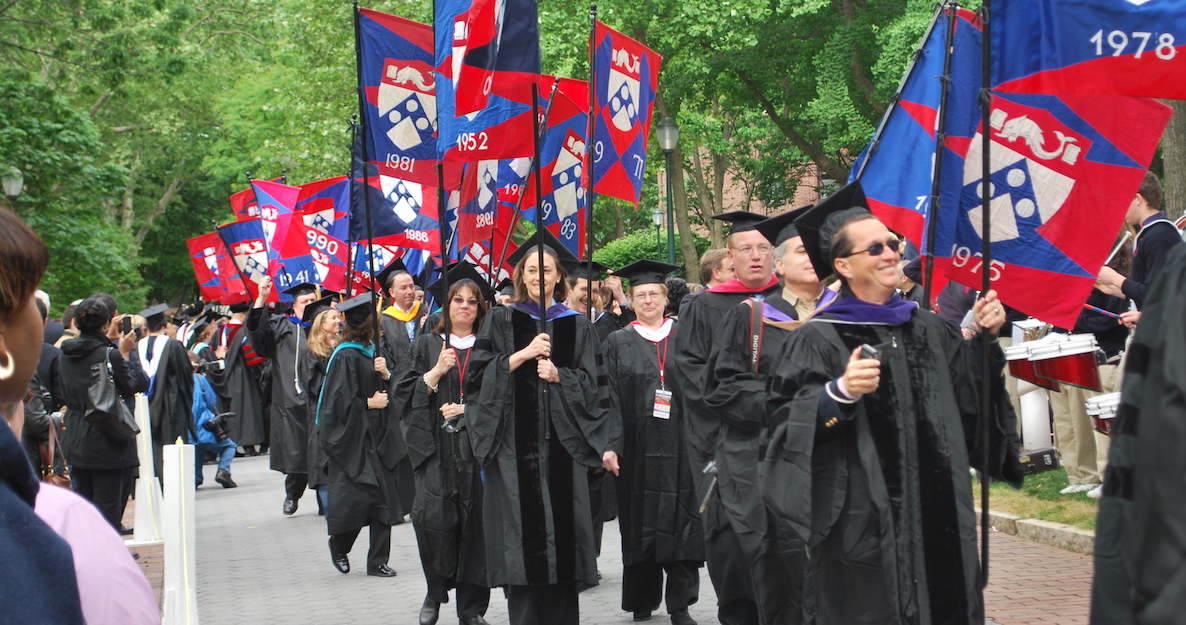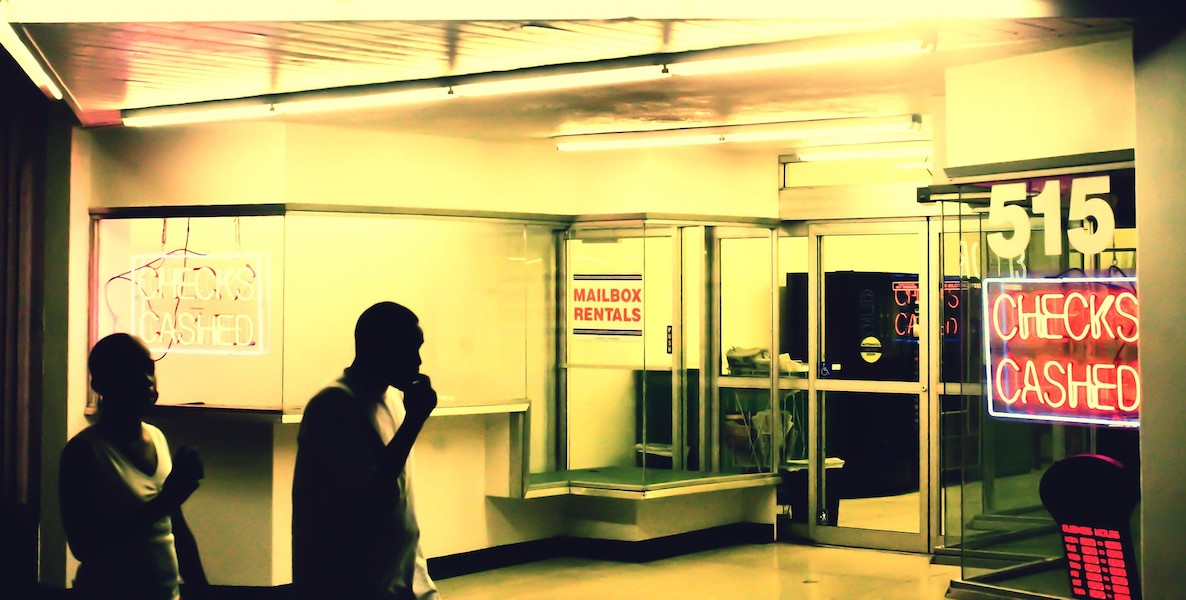Covid-19 and the fallout from it confronts Philadelphia with a series of overlapping health, economic, fiscal and social crises. These are perhaps the deepest crises the city has faced in modern memory, but its roots are not new.
Covid-19 has accelerated and reinforced deep challenges the city was facing even before the pandemic struck—crises of equity and inclusion, of overcoming inequality and deeply concentrated urban poverty, of building a more robust, sustainable, inclusive and resilient economy.
It has become something of a cliché to say a crisis is a terrible thing to waste. But we surely can’t waste this one. There is a rare opportunity and obligation to finally address the deep challenges and overlapping crises facing Philadelphia, and build the city back better.
In the absence of federal leadership, Philadelphia must design its economic recovery strategy from the bottom up. The city is no stranger to doing things this way.
![]() Its remarkable urban revitalization exemplifies the “new localism” that our dear friend and colleague the late Jeremy Nowak taught us all so much about—a product of the coming together of anchor institutions in the form of the region’s universities and medical centers, local government, the business community, philanthropies and neighborhood and civic organizations that have driven the city’s economic comeback. The challenge ahead will require even bigger, bolder and more transformative thinking and action by this remarkable coalition of local actors and organizations.
Its remarkable urban revitalization exemplifies the “new localism” that our dear friend and colleague the late Jeremy Nowak taught us all so much about—a product of the coming together of anchor institutions in the form of the region’s universities and medical centers, local government, the business community, philanthropies and neighborhood and civic organizations that have driven the city’s economic comeback. The challenge ahead will require even bigger, bolder and more transformative thinking and action by this remarkable coalition of local actors and organizations.
To this end, we recommend a $250 million Philadelphia Regeneration Fund be locally capitalized to ensure that capable intermediaries can build more capacity, proven successes can be scaled and innovative solutions can be tested.
Together and with the support of our colleagues at Drexel University and across the city, our research has helped us take the pulse of the city and identify its opportunities and challenges.
![]() One of us, Bruce Katz, led a major Brookings Institution initiative that called on the region to better connect to compete, to leverage its innovative capacity in next generation sectors like genomics and precision medicine, and to expand its world class innovation district while making it more inclusive.
One of us, Bruce Katz, led a major Brookings Institution initiative that called on the region to better connect to compete, to leverage its innovative capacity in next generation sectors like genomics and precision medicine, and to expand its world class innovation district while making it more inclusive.
The other, Richard Florida, dug into the city’s deepening new urban crisis and the need for it to shift to a new model of inclusive prosperity under the auspices of the inaugural Philadelphia Fellowship sponsored by Drexel University, Thomas Jefferson University and the University City Science Center.
These initiatives, taken together, documented the enormous opportunities and significant challenges facing the city and metro region, challenges that are magnified by Covid-19 and the overlapping economic, social and fiscal crises that have emerged in its wake.
It is time for a new roadmap that puts inclusion and equity, resilience and sustainability at the forefront of the region’s strategy, reshaping the city and region’s future growth in ways that substantially increase quality jobs and living standards for all Philadelphians, while radically reducing racial and ethnic disparities in income, wealth and health, and ensuring that the city grows and develops in radically different ways.
Seven pillars for rebuilding a more equitable Philadelphia
1. Quadruple down on innovation
A strong economy is the key to addressing each and all of the challenges facing Philadelphia. The city and its anchor institutions must continue to stay focused on building and reinforcing its innovative knowledge economy. The pandemic is altering market dynamics and will test some industries and favor others. The increased speed of digitalization will provide new opportunities, including in financial technology and healthcare delivery.
The city and region must collaborate to identify and invest in growing industries and economic sectors that can drive the economy for the future. Special intermediaries that are built both to accelerate commercialization of university research and recruit global companies (BioSTL being one of the best models) should be studied for rapid adaptation. Jobs in this sector are not just for PhD’s, and include advanced manufacturing and technical positions at all skill and education levels.
2. Upgrade workforce skills
The pandemic makes it clear that more Philadelphians must be prepared to do higher-skill, higher paying jobs. Post-secondary enrollment tends to increase during recessionary periods. This presents a prime opportunity to upskill the workforce, through community colleges and workforce development programs in service of advanced industries and digital jobs. Strategies must be developed to determine which skills should be fostered, where programs should be housed, who will lead delivery and how partners can best be involved.
The West Philadelphia Skills Initiative has been a real leader in this area and should be scaled. On a more systemic basis, Real Jobs Rhode Island has pioneered business-led “train and place” efforts, to ensure that demand is driven and curriculum is designed by industry partners.
Waiting for the federal government is the absence of a strategy. Local leaders must lead and be supported with an injection of corporate and civic capital—a $250 million Philadelphia Regeneration Fund at a minimum—to drive a burst of practice-driven innovation.
3. Focus on business-building
The pandemic has hit the Black and brown communities hardest, with Black Philadelphians disproportionately likely to contract the virus and die from it. At the same time, Black- and brown-owned businesses have been uniquely injured by the coronavirus crisis; many are sole proprietorships without access to traditional capital, meaning they did not have the banking relationships necessary to receive federal support.
Bolstering minority communities and businesses owned by people of color must be a centerpiece of the city’s recovery strategy going forward. This will require actions to bolster the procurement of goods and services from Black- and brown-owned businesses, provide these businesses the nurturing and mentoring they need to start and grow, and give them ready access to quality capital, debt as well as equity.
This support needs to be provided as an integrated system, as in Cincinnati, starting with the Buy Local decisions by major universities, hospitals and corporations. To this end, the progress being made by Philadelphia Anchors for Growth and Equity initiative, led by the Philadelphia Economy League, is very encouraging.
4. Ensure the city’s main streets survive
Philadelphia is a city of proud neighborhoods, with distinctive main streets, business districts and other local nodes of commerce. The stabilization of small businesses and the growth of new enterprises is critical to preserve local commerce and re-grow income and wealth.
But more deliberate efforts are needed, to ensure that empty storefronts rapidly gain new tenants, new cooperative business models are pioneered and parasitic competitors like Dollar Stores are diminished. Cities like Cincinnati and Saint Louis are considering new vehicles for Main Street Regeneration and community wealth building and ownership, building on the work of business improvement districts, community development corporations and community development finance institutions.
5. Address hyper-poverty
As the Pew Charitable Trusts has shown, Philadelphia’s share of city households living below the federal poverty line (24.5 percent by latest count) remains the highest of the 10 largest U.S. cities. Nearly 380,000 Philadelphians lived in poverty pre-Covid; we shudder at what the number will be if federal aid doesn’t continue.
This is not just an economic and social catastrophe; it is a health care disaster. The Black Lives Matter movement has shone a powerful light on the city and the nation’s racial and economic divides. As City Councilmember Allan Domb and others have long advocated, it is time to develop a comprehensive approach to reducing poverty, at scale, across the city.
It is time for a new roadmap that puts inclusion and equity, resilience and sustainability at the forefront of the region’s strategy.
6. Upgrade jobs for front-line workers
More than half of Philadelphia’s workforce toils in low-paid frontline jobs which, by definition, do not pay enough to support a family. It is time to reward our front-line heroes by increasing the minimum wage and implementing a good jobs strategy which pays them more and improves their working conditions. The only way for the city to rebuild its middle class is to ensure that frontline workers are paid enough to be part of it.
7. Make health and resilience a rebuilding priority
Philadelphia is, arguably, the medical and healthcare capital of the United States. Those resources must be marshaled to rebuilding as the nation’s healthiest and most resilient city, preparing its people, its communities, its transit and buildings for the impacts of future pandemics and health crises. This should be an area for the formation of new companies and social enterprises, fueled by the creation of a Health Equity Accelerator.
These seven pillars are by no means comprehensive. Other efforts must include, at a minimum, an enhanced commitment to greening the energy, building and transport sectors and growing homeownership through improved lending products. Local efforts are also underway in both these areas, including through the Philadelphia Energy Authority and Philadelphia Redevelopment Authority.
It has become something of a cliché to say a crisis is a terrible thing to waste. But we surely can’t waste this one. There is a rare opportunity and obligation to finally address the deep challenges and overlapping crises facing Philadelphia, and build the city back better.
Philadelphia has all the ingredients to lead the way to an inclusive and resilient recovery. The city knows what to do and it has the institutions to deliver—its universities and health care networks and organizations as diverse as the Philadelphia Economy League, the Enterprise Center, IF Labs, the Kensington Corridor Trust, Ben Franklin Technology Partners, The Reinvestment Fund, the University City and Center City Districts, the University City Science Center, and the Philadelphia Industrial Development Corporation, just to name a few. These efforts must be aligned and reinforced in an even more powerful version of the new localism that powered the city’s urban turnaround.
What is needed now are a series of concrete actionable strategies that build on proven strengths and capable practitioners and are crystal clear about design, finance, delivery and accountability. The need for speed is critical, particularly to prepare for the possibility that the federal government comes through early next year with desperately needed countercyclical investments in innovation, infrastructure, small business and human capital. Federal investments will only succeed if they are informed by customized local action that builds on local assets and networks.
But waiting for the federal government is the absence of a strategy. As described above, local leaders must lead and be supported with an injection of corporate and civic capital—a $250 million Philadelphia Regeneration Fund at a minimum—to drive a burst of practice-driven innovation.
The crises the city faces are the greatest in a generation, perhaps in a century. The time for bold ambitious leadership is now.
Richard Florida, the bestselling author of The Rise of The Creative Class and other titles, is a university professor at the University of Toronto and served as the inaugural Philadelphia Fellow. Bruce Katz is the founding director of the Nowak Metro Finance Lab at Drexel University and co-author of The New Localism.



